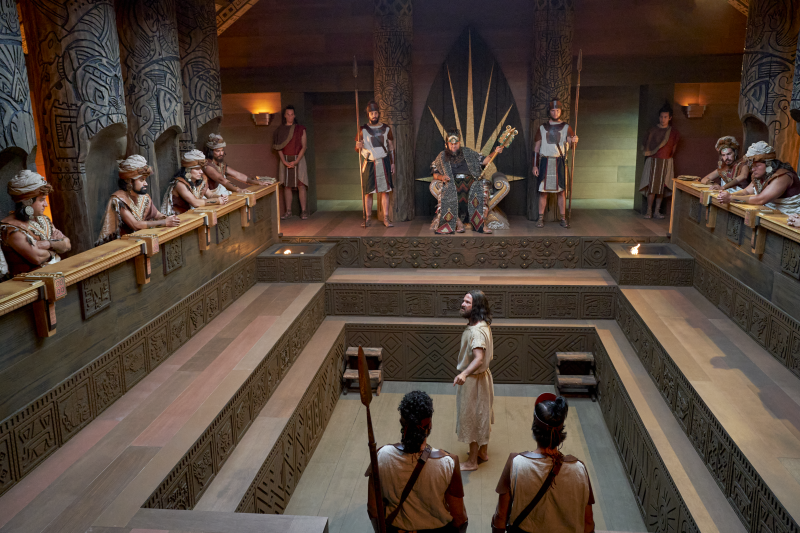Today I have a short analysis of some of the words of Isaiah, as quoted by Abinadi in the Book of Mormon.
I believe the chapter is important because the words of Abinadi are arranged similar to a chiasmus: it starts with him teaching that salvation does not come by the law of Moses alone, moves into speaking about the Messiah, then ends with warning about the consequences of not keeping the law of God, including the law of Moses. Chapters 14 and 15 are the center, as they teach about the nature of the Savior.
Some of you may remember a few weeks back when I wrote about the differences between Isaiah in the Book of Mormon and the Old Testament. I have prepared some more diff reports using that same program. Besides the entirety of Mosiah chapter 14, chapters 12 and 15 also contain short passages from Isaiah 52. Here are the links to each of these comparisons.
Mosiah 12:21-24 vs Isaiah 52:7-10
Mosiah 14 vs Isaiah 53
Mosiah 15:29-31 vs Isaiah 52:8-10
In each case, they are almost identical, with a few differences in punctuation and pluralization. The interesting difference is in chapter 14, verse 9.
In describing the Messiah, Isaiah says that "he had done no violence, neither was any deceit in his mouth." The way Abinadi quotes it, he says that Jesus "had done no evil" (emphasis mine).
As the prophet Isaiah is known for having multiple, correct interpretations of his sayings, I don't want to interpret this scripture for you. I believe the Spirit can help each us understand 1) why this chapter was so important for Abinadi to quote to the priests of King Noah, and 2) what this small difference in the text can teach us about the nature of the Savior.
I will leave you with a few cross-references that I think relate to this.
Feel free to discuss this with friends and family, as well as in the comments.
Photo credit: www.churchofjesuschrist.org/media
This coming week in the lesson manual for Come, Follow Me, the assigned reading is Mosiah 11-17 in the Book of Mormon. Some of these chapters contain the words of the prophet Abinadi, as he spoke to King Noah and his priests. One of the most notable chapters is when Abinadi recites Isaiah 53 to teach about the coming of the Messiah. I believe the chapter is important because the words of Abinadi are arranged similar to a chiasmus: it starts with him teaching that salvation does not come by the law of Moses alone, moves into speaking about the Messiah, then ends with warning about the consequences of not keeping the law of God, including the law of Moses. Chapters 14 and 15 are the center, as they teach about the nature of the Savior.
Some of you may remember a few weeks back when I wrote about the differences between Isaiah in the Book of Mormon and the Old Testament. I have prepared some more diff reports using that same program. Besides the entirety of Mosiah chapter 14, chapters 12 and 15 also contain short passages from Isaiah 52. Here are the links to each of these comparisons.
Mosiah 12:21-24 vs Isaiah 52:7-10
Mosiah 14 vs Isaiah 53
Mosiah 15:29-31 vs Isaiah 52:8-10
In each case, they are almost identical, with a few differences in punctuation and pluralization. The interesting difference is in chapter 14, verse 9.
In describing the Messiah, Isaiah says that "he had done no violence, neither was any deceit in his mouth." The way Abinadi quotes it, he says that Jesus "had done no evil" (emphasis mine).
As the prophet Isaiah is known for having multiple, correct interpretations of his sayings, I don't want to interpret this scripture for you. I believe the Spirit can help each us understand 1) why this chapter was so important for Abinadi to quote to the priests of King Noah, and 2) what this small difference in the text can teach us about the nature of the Savior.
I will leave you with a few cross-references that I think relate to this.
- D&C 101:10-12
- Isaiah 34:1-2
- Matthew 21:12-13 (highlighting might not work)
- Alma 12:36-37
Feel free to discuss this with friends and family, as well as in the comments.

Comments
Post a Comment